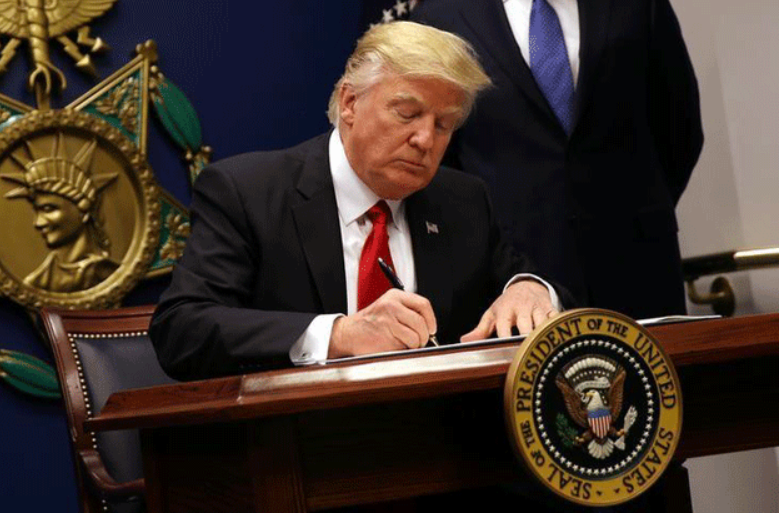Trump’s Tariff Tensions Escalate
US President Donald Trump has announced sweeping new tariffs on goods imported from Canada, Mexico, and China, escalating trade tensions with the country’s three largest trading partners.
The tariffs, set to take effect on Tuesday, include a 25% duty on imports from Canada and Mexico and a 10% tariff on Chinese goods. Canadian energy products will face a lower 10% levy.
Trump justified the move as a response to illegal immigration and drug trafficking concerns, invoking the International Emergency Economic Powers Act (IEEPA).
Today’s tariff announcement is, therefore, necessary to hold China, Mexico, and Canada accountable for their promises to halt the flood of poisonous drugs into the United States,” the White House said in a statement posted on X.
Canada and Mexico swiftly condemned the tariffs. They announced plans for retaliatory measures.
Trump’s Tariff Tensions Escalate: Retaliation from Canada and Mexico
Canadian Prime Minister Justin Trudeau said, therefore, that Ottawa would impose 25% tariffs on $155 billion worth of US goods. This, in turn, includes beer, wine, fruit, vegetables, clothing, and household appliances.
“We don’t want to be here, we didn’t ask for this,” Trudeau said at a press conference. “But we will not back down in standing up for Canadians.”
Mexico’s President Claudia Sheinbaum called the US accusations of links between her government and drug cartels “slander.” Mexico is preparing retaliatory tariffs of 25% on American imports, targeting key industries.
Beijing also strongly opposed the tariffs; in fact, they called them “wrongful practices.” Furthermore, the Chinese government stated it would file a complaint with the World Trade Organization. Moreover, they plan to take “all necessary steps” to safeguard their economic interests.
China’s vice-premier Ding Xuexiang had previously advocated for a “win-win” trade relationship. The new tariffs risk further straining diplomatic ties.
Economists warn the tariffs could lead to higher prices on goods ranging from cars and steel to fresh produce and alcohol. The auto industry, in particular, could be severely impacted. TD Economics estimates an increase of $3,000 in the average US car price.
A Peterson Institute for International Economics report suggested that broad 25% tariffs on Canada and Mexico could slow economic growth. They might also drive up inflation in all three countries.
US industry groups also raised concerns. The National Homebuilders Association warned of rising housing costs, and Farmers for Free Trade said tariffs would worsen the challenges faced by American farmers.
Trump acknowledged that the tariffs could cause “some temporary, short-term disruption.” He insisted they were necessary to protect US interests.
Despite the tensions, trade experts believe Trump could roll back the tariffs if Canada and Mexico agree to additional border security measures.
Ashley Davis, a Republican lobbyist, said Trump may use the tariffs to extract concessions. “The border and China were the two biggest issues in November’s elections,” she said. “Anything he can do to claim wins on that, he’s going to do.”
For now, trade relations among North America’s largest economies remain on edge. Businesses and consumers brace for the impact of escalating tariffs.



